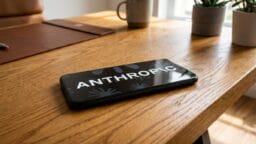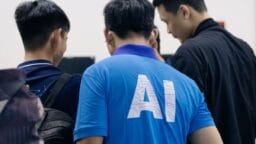Ricardo Araujo: A Journey Through Diversity and Innovation in E-Commerce
Pursuing an MBA at Northeastern University imparted a crucial operational principle to Ricardo Araujo that has undergirded his burgeoning e-commerce network across Latin America: a diverse and eclectic team invariably enhances strength and efficacy.
“One of the most significant lessons I gleaned was the ability to genuinely acknowledge and appreciate differing perspectives, particularly those of my international peers who hailed from disparate backgrounds,” Araujo reflected during a recent video call from his home office in São Paulo. “This realization has become a guiding ethos for me.”
Araujo earned his MBA in 2002 with a concentration in finance, though his professional trajectory veered towards logistics. He played a pivotal role in one of Brazil’s preeminent transportation firms, ultimately crafting an innovative distributed shipping framework with over 5,000 pick-up and delivery points throughout Latin America.
His foundational principle: to amalgamate his experiences with individuals possessing divergent thought processes.
“Upon my arrival in Boston, I assumed I possessed considerable knowledge,” Araujo recalled. “However, when immersed among individuals from Kenya, India, Russia, the U.S., and France over an extended period, I realized my understanding was but a fraction of what it could be,” he added, gesturing with his finger and thumb in close proximity.
After his graduation from Northeastern in 2002, Araujo returned to Brazil to resume his work with Rapidão Cometa, the logistics company where he had previously been employed in his native Recife.
This time, however, he ascended to the role of São Paulo manager, overseeing a workforce of 500 employees at a mere 27 years of age.
“I questioned the owner’s sanity in appointing someone so young to this position,” Araujo remarked. “Nevertheless, we opened numerous branches and achieved significant growth.”
In 2012, the establishment was acquired by FedEx, at which point Araujo assumed the role of general director. He dedicated himself fully to his work, but after a decade, he faced health challenges and ultimately departed.
This juncture marked a period when the insights gained from Northeastern truly illuminated his path. In 2017, Araujo co-founded a consulting firm with two colleagues from Rapidão Cometa.
Despite their stark differences, Araujo emphasized their ability to leverage these disparities successfully. Together, they explored and conceptualized a novel logistics model for e-commerce that optimizes efficiency for drivers, sellers, and customers alike.
Their endeavor concentrated on transactions processed through Mercado Livre, the leading e-commerce platform in Latin America. Their aim was to simplify transactions and deliveries through strategically established pick-up and drop-off points within existing small businesses.
Araujo explained that in Brazil, if a delivery occurs when the recipient is unavailable, the product cannot be left at the residence, thereby creating a logistical impediment. Their venture, Kangu, orchestrated a network of local merchants to serve as delivery endpoints.
They remained committed to preserving the core operations of these businesses, ensuring they did not transform into mere storage facilities.
For instance, a pet shop would remain a pet shop, Araujo asserted, underlining the importance of maintaining the unique character of local neighborhoods.
During the COVID-19 pandemic, Araujo’s Northeastern experiences proved invaluable once more. He reminisced about his time as a co-op student at Mars Wrigley’s New Jersey headquarters on September 11, 2001, during the catastrophic terrorist attacks.
“It was an unprecedented and emotionally charged period,” he recounted, “but what resonated with me most was a decision made by the company’s president.”
Rather than fixate on the immediate financial fallout, the focus shifted to providing support for employees affected by the tragedy.
Araujo noted, “Observing that response left an indelible mark on me,” and he emulated that approach when guiding his Kangu team through the pandemic.
“That lesson was crucial,” he remarked. “Instead of allowing financial considerations to dictate our decisions, we grounded ourselves in our fundamental values and mission.”
They refrained from executing any layoffs, and as Brazil’s economy began to rebound, the company’s network of drivers emerged intact and more dedicated than ever, he noted.
The e-commerce sector thrived, and three years following the company’s inception, Araujo and his partners sold Kangu to Mercado Livre.
Now, with ample opportunity for introspection regarding his next career endeavor, Araujo recalls his tenure as a teaching assistant at Northeastern, collaborating with Professor Ganesh Krishnamoorthy. Guiding undergraduates compelled him to cultivate empathy and creativity, he stated.
“That capacity to connect and inspire others has remained a cornerstone of my professional journey,” he concluded.
Source link: News.northeastern.edu.






